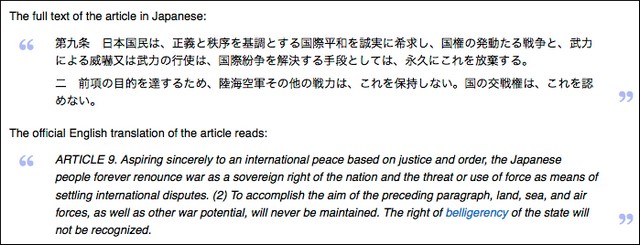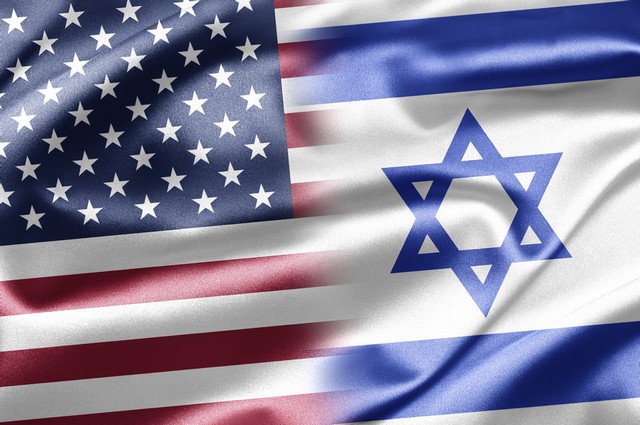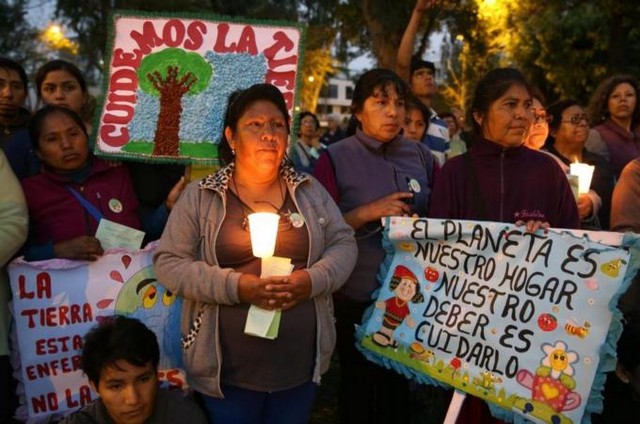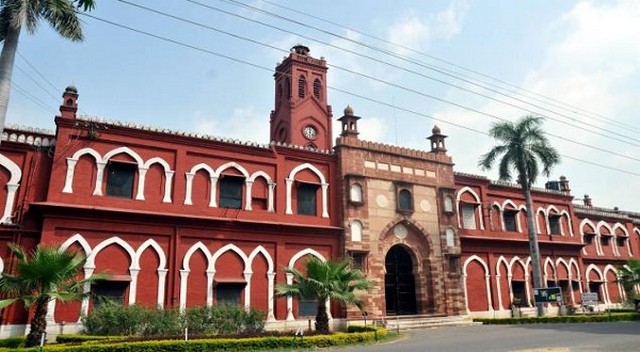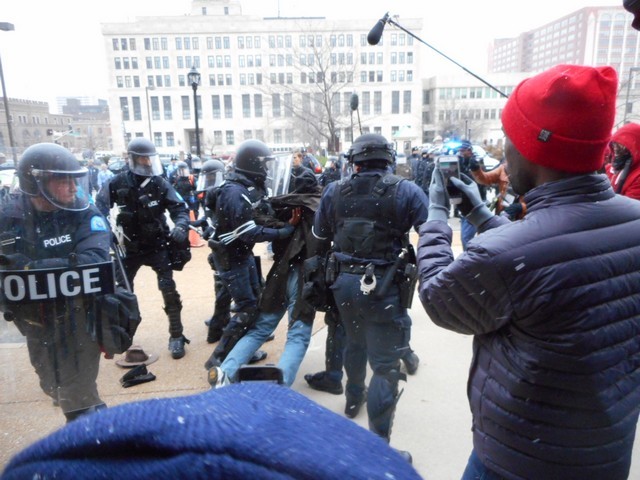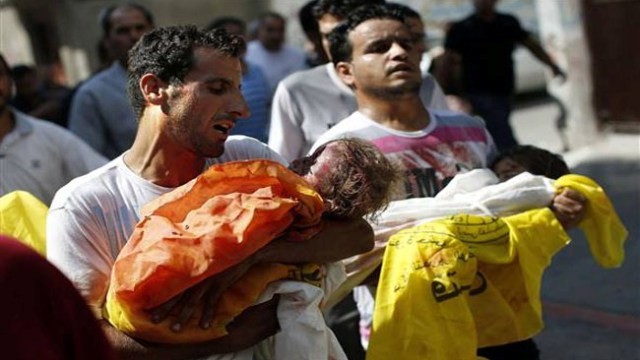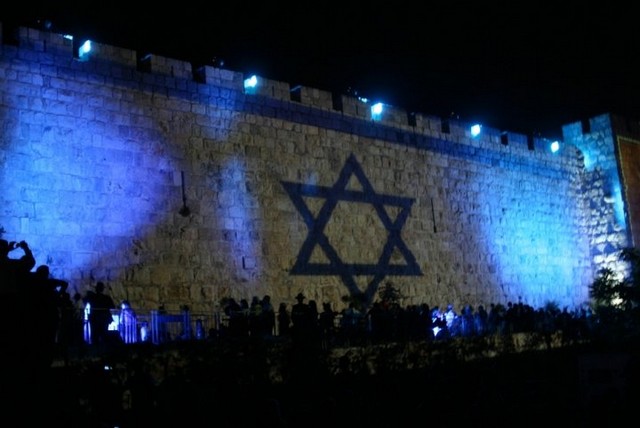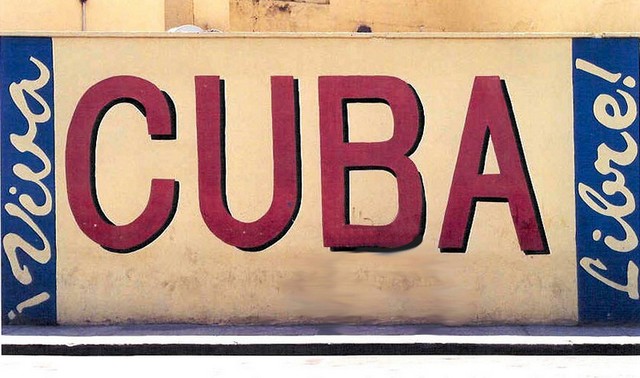Rev. Dr Olav Fykse Tveit
World Council of Churches General Secretary
Address to the 4th Global Inter-Religious Conference on Article Nine of the Japanese Constitution
December 3, 2014
INTRODUCTION AND TRIBUTE TO INTER-RELIGIOUS ACTION
I bring greetings to you all from the World Council of Churches. It is a distinct privilege to be here in Tokyo for this 4th Global Inter-Religious Conference on Article Nine. The World
Council of Churches is pleased to have also taken part in the three previous conferences, in Tokyo, Seoul and Okinawa.
These conferences are timely and of singular importance. Seventy years after World War II, they breathe new life into Article Nine. They concentrate the hearts and minds of different faiths and
different cultures on an issue that brings peace and reconciliation onto the agenda of religious communities in Asia and other parts of the world.
In July this year, the Central Committee of the WCC adopted a policy position on Article 9. The WCC noted that Article Nine has contributed to the image of post-war Japan as a peace-loving
nation, has become a diplomatic asset for Japan, has helped Japan to re-develop relationships with neighbouring states and make non-military contributions in crises overseas.
The WCC statement names the tragic history of women forced into sexual slavery by the Japanese military during World War II as a “constant reminder of the abhorrence of war and its
destructive impact on the lives of innocent and vulnerable people”.
The Central Committee expressed its grave concern at the Japanese government’s initiative to reinterpret or change Article Nine. The WCC warned that to weaken this constitutional prohibition would undermine regional security. It called for the Japanese government to respect both the letter and the spirit of Article 9. It urges the government of Japan to live up to its “Peace Constitution”, building non-military collective security agreements with all neighbouring states in Northeast Asia. It encourages the Japanese government not to surrender to external 2 pressures to weaken Article 9. The WCC statement says that Article Nine is Japan’s oath to not repeat its war-time mistakes.
The statement praises Japanese churches and organizations for “upholding the Peace Constitution in hope that Japan would become a truly peaceful nation”. And on August 4th 2014 a church delegation led by WCC President Rev Dr CHANG Sang of South Korea, including a Buddhist leader, met the Chief Cabinet Secretary of the Japanese government. They presented him with the Article Nine statement and the new WCC Statement Towards a Nuclear-Free World.
The Chief Cabinet Secretary engaged in an exchange of views. He thanked the churches of Japan and the WCC for assistance in the aftermath of the Fukushima disaster. He said that significant changes in global conditions had brought the Japanese government to consider the right of collective self-defence within the framework of Article Nine, and that self-defence would only be exercised in a limited way. Japan’s regard for world peace and for post-war freedom and democracy has not changed in any way, he said.
CURRENT TRENDS
Trends in Northeast Asia would certainly indicate that robust government action for peacebuilding and collective security is greatly needed. Nation by nation, the picture is troubling.
There are extensive and expensive programs to build-up military capacities. The United States’ “pivot” to Asia is a troubling long-term shift in the global deployment of military forces. Japan’s profile in Northeast Asia is taking on a more military character.
The footprint of the US military on Japanese territory has been heavy since World War Two. It is now being up-graded, as the 2012 Article Nine Conference could see in Okinawa. One analyst at that conference called new missile defense systems the “Trojan Horse” that is destroying the Peace Constitution. If missile defense is a Trojan Horse, then the naval base being built on Korea’s Jeju Island is its newest stable. Church and civil society resistance to the new base there was brought to the attention of the WCC Assembly in Busan.
Endemic hostility with North Korea and mutual suspicions with China can be readily used to justify militarization. However, such tensions should in fact be used as opportunities tonormalize relations. People of goodwill must call for greater regional commitment to confidence-building measures, equitable commercial contacts, and negotiations to settle old disputes. Instead, we are witnessing a relaxation of Japan’s arms export controls, a weakening of 3 civilian authority over the Japanese military, and pressure for Japan to join one-sided schemes of self-defense. In the event of crisis, the so-called Self-Defense Force is tasked with a broad variety of military operations alongside the US.
These are Article Nine issues. They must be analysed and understood regionally as well as nationally. The Big Power rivalry behind them is evident along the DMZ, in the Philippines and the South China Sea. Its impact is seen in basing agreements, regional arms sales and intensifying territorial disputes.
Article Nine’s peace provisions are historic. The current pressure to weaken them is deeply concerning. If actions speak louder than words, the actions of the state that imposed Article Nine are already rewriting Article Nine. In the mind of an average citizen, the message seems to be:
Yes, Japan, you are still not supposed to use war as in instrument of foreign policy. However, we want you to see our wars as your wars. You must be prepared to do your part. Meanwhile, we will continue to protect you with our nuclear weapons and we will continue to use your land and other allies’ lands for our military bases. In effect, you will use force as an instrument of foreign policy but it will be mostly our foreign policy.
AN UNFINISHED PILLAR
In places where people build great buildings out of stone, pillars are an essential element. At the site or in a quarry, one sometimes sees a half-finished pillar. A block of rock lies on the ground with one end still rough and the other end neatly sculpted into a pillar. Sometimes, the capitol or top of the pillar is already carved with decorations.
There is a parable of Article Nine in this image. The adoption of Article Nine in 1947 was like sculpting a pillar of stone for a remarkable living monument, a Peace Constitution. Article Nine was a constructive achievement after a vastly destructive war. The pillar stands upright, but the work is not finished. The base of Article Nine, and its foundation, still have to be finished. These Inter-Religious Conferences demonstrate the conviction which will be needed to complete the peace pillar that is Article Nine.
Religious communities here and abroad do not look to the Japanese government to weaken its Peace Constitution. We do not accept that Japan can move away from Article Nine. Rather, we expect Japan to follow Article Nine as a pillar for peace in this region, and far beyond. 4 There is nothing in Article 9 that a responsible government can ignore. The UN Charter – written in the same epoch as Article 9 – does not grant states an absolute right to wage war. It obliges all states to settle international disputes without the use of force. It also calls them to minimize the diversion of resources from public welfare and the common good to armed forces and the waging of war.
We expect Japan to follow Article Nine. We are convinced of the power of Japan’s positive example to influence the conduct of other states.
PILLAR FOR PEACE, HEALING THE PAST Article Nine serves as a pillar for peace in Northeast Asia because it helps to heal the past, to guide the present and to shape the future.
Much of the past remains unhealed in a region which has endured the traumatic effects of war, rape, pillage and occupation. Article Nine exists in a difficult context. This unfinished pillar can be seen from different angles—as an example of victor’s justice, as a penalty for defeat, or as a historic bid to bring healing.
What kind of message does it send, though, to wage total war on a country, even using atomic bombs, and then make that country promise never to do what was done to it? Certainly, a very mixed message at best. The most likely outcome might be for the defeated nation to learn the opposite lesson from the one intended: Adopt the strategy of your conqueror; wait till the time is right; seek revenge.
However, it is not hard to understand the healing power of Article Nine for the countries that Japan conquered in World War II. In addition, it is important to note that Article Nine has wide support in Japan too. Many citizens have recognized the wisdom of breaking the cycle of violence, of refusing the reflex of revenge, of rejecting the destructive dynamics of narrow nationalism. Let us give thanks for the role that religious beliefs and public witness play in this shared commitment to peace.
Those who resent Article Nine, who see it as a stain on their national honour, and who look forward to its demise, are doing what one would expect of human nature. A population that has lived through a violent past is fertile soil for the cultivation of future violence. An embittered society is poor soil in which to grow the seeds of peace.
The Cold War froze out a proper recovery from World War II for Northeast Asia. The Cold War lasted for a long time, but it is over. Article Nine may have been ahead of its time, but it has survived. Today, with East Asia emerging as a world center, is surely the time for Article Nine to come into its own as a central pillar for peace.
The WCC Assembly Statement On the Way of Just Peace addresses alternatives to war which are consistent with Article Nine. It says that: “For peace among the nations, churches must work together to strengthen international human rights and humanitarian law, promote multilateral negotiations to resolve conflicts, hold governments responsible for ensuring treaty protections, help eliminate weapons of mass destruction and press for reallocation of unnecessary military budgets to civilian need. We must join other communities of faith and people of goodwill to reduce national military capacities and delegitimize the institution of war.”
These words evoke the spirit of Article Nine. No matter its origins in the politics of occupation and new schemes for hegemony, Article Nine is a pillar for helping a war-torn region recover from its terrible past.
GUIDING THE PRESENT
If there is one place where Article Nine must serve as a guide for current affairs in Northeast Asia, it is the Korean peninsula. The Korean peninsula has endured more than a century of occupation and division. The Korean people have earned themselves wide international recognition for their perseverance, hard work and ingenuity, yet their tireless dedication to progress and modernity has not been rewarded with peace.
At the WCC Assembly in Busan we recognized the long history of ecumenical and inter-religious engagement for peace in the Assembly Statement On Peace and Reunification of the Korean Peninsula.
We recommended more such initiatives to continue, involving North and South Korean church leaders, other churches from Asia, North America and Europe, and including Christian-Buddhist cooperation. Such initiatives show civil society in harmony with the spirit of Article Nine. “On the Korean peninsula, shared human security and human rights must become a greater priority than divisive, competitive and militarized national security,” the Assembly declared.
It called for “fresh and decisive action” on a peace treaty agreed by the countries related to the Armistice Agreement. It reminded participants in the Six-Party Talks of their promise to hold peace forums. It called China to act as a facilitator for reaching long-pending agreements. The statement denounced military build-ups in the region including the stockpiling of nuclear weapons. We “strongly urged” the US and Japan to stop blockades and sanctions against the Democratic People’s Republic of Korea, to halt all military exercises on the Korean peninsula and to reduce military expenditures in the region.
We called for a “truly Demilitarized Zone” in Korea that, with international cooperation, would transform the peninsula into a zone of peace. This is the geography of Article Nine. Much has happened since Busan. Church leaders from North and South Korea came to Geneva in June for an international consultation on peace, reconciliation and reunification. New relationships were begun. Doors were re-opened. A key follow-up step also took place in October – a WCC visit to the Korean Christian Federation in Pyongyang.
SHAPING THE FUTURE
Finally, the obligations enshrined in Article Nine also help to shape the future, in Northeast Asia and beyond. Let us look at one concrete opportunity to build a safer future, specifically, so that no one in the world will ever again suffer what Hiroshima and Nagasaki have suffered. These inter-faith conferences have all denounced nuclear dangers. Let us say here with conviction that Article Nine is inherently incompatible with nuclear weapons. First, it is clearly unacceptable under Article Nine for Japan to possess nuclear weapons. Indeed, a more flagrant violation of the constitution is hard to imagine. Second, it is antithetical under Article Nine for Japan to accept that the monstrous weapons used against it should ever be used on its behalf against others. Yet this is what Japan accepts in the US strategy of extended nuclear deterrence policy. Third, it is hypocritical under Article Nine for the US to co-opt Japan into its own war plans and doctrines.
The Asia we hope for – an Asia where Article Nine is working properly – must be an Asia that is free of nuclear weapons. A Japan threatened by nuclear weapons is not a Japan at peace. A Japan dependent on nuclear weapons is a Japan living in fear and at constant risk. This is true for Japan, and true for its neighbours.
We are an inter-religious conference. Let us listen to some words of faith on this topic from the Busan Assembly: The WCC Assembly stated that to use the energy of the atom in ways that threaten and destroy life is a sinful misuse of God’s creation. Christians are to understand God as a generous Creator who calls life into being from atoms and molecules and endows creation with life in abundance.
We believe that humanity is called to live in ways that protect life instead of putting it at risk – neither living fearfully, defended by nuclear weapons, nor living wastefully, dependent on nuclear energy. Our task is to build communities and economies in harmony with God’s manifold gifts of life, the Assembly said.
In the 1990s, when the Sahtu-Dene people of northern Canada learned that uranium from their lands had been used in the bombs that destroyed Hiroshima and Nagasaki in 1945, they sent a delegation of elders to Japan to apologize.
We must listen to all who suffer nuclear harm. The voices of the hibakusha, the pi-pok-ja, and the test site victims in the Pacific and central Asia cry out for an exodus from the nuclear age. And now these are joined by the victims of nuclear disaster in another form, Fukushima.
“We must refuse to accept that the mass destruction of other peoples can be a legitimate form of protection for ourselves. God sets before us life and death, blessings and curses. God implores us, ‘Now choose life’, so that we and our children may live.”
The Assembly quoted a recent faith declaration of a group of Korean Christians: “We urgently proclaim the need not for the security of the status quo of nuclear-armed states but for the securing of life for all humanity and creation,” they said.
Let us all pray and work together for that “securing of life”. Progress is possible. The WCC is blessed with a network of churches which take a step-by-step approach to protecting life and building peace. This ecumenical network is helping to unite more and more governments behind a joint statement at the United Nations which says in part: “It is in the very interests of the survival of humanity that nuclear weapons are never used again under any circumstances”. 155 governments have now joined. Japan’s “yes” vote is widely appreciated. These joint actions are part of a groundswell of support for delegitimizing nuclear weapons and ultimately banning them for their catastrophic humanitarian impact.
The WCC is grateful for member church representatives in Japan and Korea who help lobby their governments in this way, and for collaboration with Buddhist partners pursuing the same results.
Next week in Vienna, Japan will join some 150 governments in the latest of a series of groundbreaking conferences on the humanitarian impact of nuclear weapons. Because these conferences are fact-based and multi-disciplinary, they challenge the dominant paradigm of nuclear deterrence and are giving rise to healthy concern among the nuclear armed states.
It is important that Japan continues to take part in these conferences and helps them succeed. If Article Nine is incompatible with nuclear weapons, it is also incompatible with the collective failure to abolish nuclear weapons, a failure in which Japan shares.
Ecumenical progress along this path of peace affirms and validates Article Nine. After the 1983 WCC Assembly in Vancouver, Canada, churches played key roles in a successful campaign to make the South Pacific a Nuclear-Weapon-Free Zone. Following a WCC recommendation at the 2006 Assembly in Brazil, WCC churches helped make Africa a Nuclear-Weapon-Free Zone. Now the Busan Assembly has called on the churches to “Ensure the complete, verifiable and irreversible elimination of all nuclear weapons in North East Asia”. As many of you know, this is the goal of long-standing proposals for a Northeast Asia Nuclear-Weapon-Free Zone. It is a difficult proposition, but it is not a dream. A just and sustainable peace in the region will be a
peace where neighbouring states no longer threaten each other with mass destruction, as they have for the past 60 years.
It is our conviction that Article Nine must be reaffirmed, not reinterpreted. It must be repositioned in the center of Japan’s international relations, not relegated to the margins of national life. Article Nine is Japan’s heritage and more. It is a lesson for all nations scarred by war, a corrective for all governments that indulge in confrontation. Article Nine is a healthy challenge for America, China, Korea and Russia as well as for Japan. More and more religious leaders must rally around this pillar for peace, in Asia and beyond.

